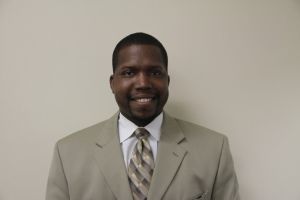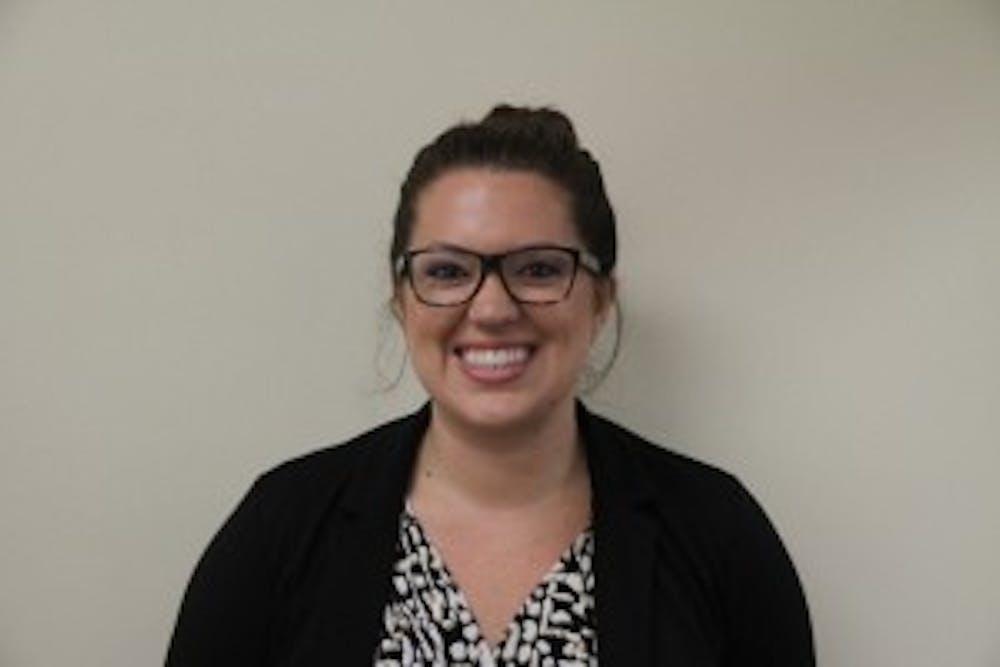By Will Anderson News & Features Editor

Calvin Smith, Jr. and Tara Fuller were recently hired as the new director and assistant director, respectively, of the Office of Fraternity and Sorority Life (FSL), formerly known as the Office of Greek Life.
Smith previously served as coordinator of Fraternity and Sorority Life at Towson University beginning in 2011, and Fuller comes from Rider University where she served as coordinator of the Greek Life Office.
Their predecessor, Rob Turning, held the title of interim director of Greek Life at Hopkins during the 2014-2015 school year. Together, Smith and Fuller have over 23 years of experience in organizational development.
Greek Life at Homewood has been under increased scrutiny by the administration and the student body over violations of the alcohol, sexual assault and hazing policies.
Smith spoke about his vision for the future of FSL.
“We want to have a healthy, safe and fun environment with a lot of integrity,” he said. “We are going to put in place a framework to make sure that our students, especially our members of the Greek community but also students who interact with them, are able to have fun in a safe environment in a healthy manner.
“Yes, we can have a good time, but we’re doing it in a way that is in congruence with, one, the values of their organization, two, the values of the University, and three, we’re keeping in mind the greater Baltimore community.”
Both Smith and Fuller are members of fraternities and still volunteer with their organizations on a regular basis. They described their experiences during their undergraduate years as members of the Greek community as positive and constructive.
“I had never expected to join a sorority, [but] I joined and experienced a lot of leadership development, more than I ever expected, which is why I continue to do the work that I do,” Fuller said.
“I picked up a lot of great skills, great leadership opportunities,” Smith said. “Of course we had fun. But the ability to travel all around the country, to continue to do that work on a national level, to impact and influence the next generation of individuals who hopefully become members of fraternities and sororities — my experience was great.”
Smith says the Office of FSL will focus on education and safety in its outreach to the Hopkins community.
“Now our job is to educate all of the student population, from the current members to the new members to the lay person who knows nothing about fraternity and sorority life,” he said. “We will be providing hazing, alcohol, bystander intervention training, sexual assault training, diversity training for the various constituents of the fraternity and sorority community. We will be looking at what current processes are in place to see how reasonable they are.
One reform that Smith is advocating is a time-limited recruitment process.
“How long should the pledge period or new member period be? Right now it looks like there is no standard previous to our administration,” he said. “It was whatever the national office’s standard was. We generally try to stay with a pledge process that is less than 40 percent of a semester, so we need to be around five or six weeks, no more than six. That’s a part of how we’ll manage safety, security, making sure everybody is educated.”
Smith spoke about transparency in the pledge process, likening pledging details to the secret composition of pharmaceuticals, which is equivalent to infringing on their right to privacy.
“That [transparency] is not something I can guarantee because these are private organizations, and they have their own rituals and own pledge processes, so by law we can’t make them reveal that information to the public,” he said. “We can get guidelines about what parts are publicly available, and we have that stuff on file.“
Fuller emphasized that students should look into each Greek organization for themselves.
“I think that it’s important for students to do their own research,” she said. “So we’ll provide as much information as we can, but it’s also important for students who are interested in affiliating with fraternity and sorority life to look at the official, international websites for these organizations.”
Smith and Fuller are both adamant that the Greek community can have a positive presence both on and off campus.
“I’ll stake my career on it,” Smith said. “I don’t think Tara and I would have left our previous posts where we were doing really well to take an opportunity to come here if we didn’t believe in the movement of fraternity and sorority life and the kind of positive force it can have on campus.
“Like any force on any campus, when left to the devices of the people without the correct mentoring, anything could become negative, and that includes fraternity and sorority life and sports clubs and anybody else. We need to have systems in place to make sure that we are ensuring that our students are operating with integrity.”
“Just like in other systems,” he continued, “we can put them in place, but there will be some outliers who don’t want to follow those, and so in those instances we have to take corrective action. But the reality is this should be a positive experience. It will be a positive experience.”
Smith discussed underground sororities and fraternities. The University does not recognize underground Greek organizations, many of whom were former official members of the Hopkins Greek community.
“When issues occur [regarding underground Greek societies], we will adjudicate those to the Office of the Dean of Student Life as individual students... for violating the student code of conduct,” he said. “There are organizations that the University is aware of — IX I think is one of them.”
Smith spoke about the possible dangers of allowing underground Greek organizations to exist:
“We’re actively working to bring those students on board because what we cannot have is a situation where our recognized groups who are following the policy can turn around and say, ‘Why are you getting mad at me, when you have this group out here that’s not following the policies and procedures?’ The last thing we want is to have a scenario where they’re not recognized, they don’t have insurance, they’re having activities and somebody gets hurt.”
Smith said it is almost impossible to prevent suspended and expelled fraternities and sororities from operating underground.
“We want to be preventative before we get to underground. So we want to do all of the education we can to equip students to make the right decisions,” he said. “If somebody owns an off-campus house, there’s not a lot we can do if we don’t own that house. We cannot abridge that right to assemble with like-minded people.”
Smith explained that limiting the growth of underground Greek organizations at the expense of official organizations is nearly impossible.
“You know, it’s a crapshoot. You hope they don’t get suspended, and then you work with the groups from an educational standpoint, Hopefully, between our actions and the international office coming in and doing what they have to do, we don’t have underground groups. I would be misleading you if I could say we could stop them completely.”
Correction: The caption under the photo of Calvin Smith, Jr. previously had the incorrect last name.





